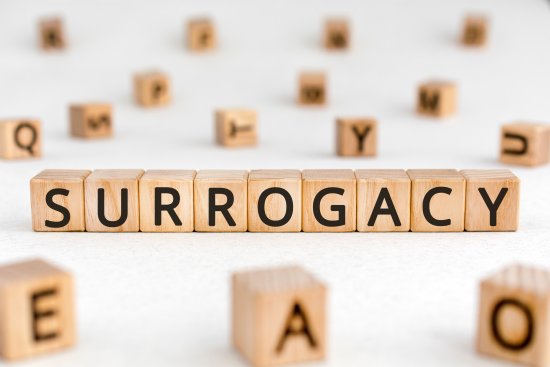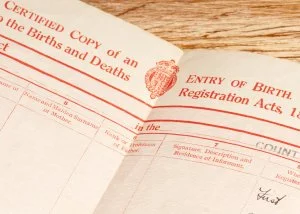Legal considerations in the surrogacy process

Contact
Table of Contents
What Are My Surrogacy Options at Home and Abroad?
When you’re considering surrogacy as an intended parent, you may be weighing your options both at home and overseas. In this article, we review the legal issues that could impact this journey for you.
When you’re considering surrogacy, as an intended parent, you may be weighing your options both at home and overseas. In this article, we review the legal issues that will assist you in making important decisions on the best way forward for you.
Surrogacy is legal in the UK, which means that intended parents can take advantage of a surrogacy process that is in most cases both safe and well-regulated. Finding a surrogate can be difficult, however, since commercial (for profit) surrogacy is prohibited. As a result, it’s becoming increasingly common for British-based couples to consider the surrogacy process in countries where there is greater availability of surrogates and commercial surrogacy is lawful.
As you might expect, there are more legal hurdles to jump through with international surrogacy than a domestic one. Understanding the differences can help you figure out which path might be best for your family.
Is surrogacy legal in the country I am considering?
Altruistic (non-profit) surrogacy is legal in the UK. However, the intended parents and the surrogate are well advised to consult a solicitor before the pregnancy. Unfortunately, the 30-year-old current law on surrogacy is out of step with the realities of surrogacy today as an accepted pathway to parenthood. Inexplicably current law makes it unlawful for solicitors, on a fee-paying basis, to draw up the crucial surrogacy agreement although general legal advice on surrogacy law is permitted. You would be able to obtain help and a draft of surrogacy agreements from the voluntary organisations concerned with surrogacy – COTS or Surrogacy UK. A surrogacy agreement records how the intended parents and the surrogate wish the surrogacy to proceed and set out everyone’s expectations throughout the pregnancy, including arrangements for handing over the baby at birth and payments for the surrogate’s expenses.
A surrogacy agreement is not enforceable by UK law. This means you are relying on each other to honour it. However, negotiating the agreement is a good opportunity to do some detailed planning before the pregnancy and make sure that your relationship is solid, which minimises the risk of future disputes.
Outside the UK, the picture is more complex. Surrogacy is only legal in a few countries, and in others, it may only be legal for married heterosexual couples. Establishing whether you are able to pursue surrogacy at all in particular countries will be the first step. If you are not sure, a surrogacy lawyer with expertise in your chosen country’s laws will be able to advise you.
Who are the legal parents?
A surrogate, whether in this country or abroad, will be the child’s legal mother at birth under English law This is even if the law in the foreign country is that both intended parents are named as the legal parents on the child’s foreign birth certificate and the surrogate not named as she is not the legal mother under that country’s surrogacy law. If the surrogate is married or in a civil partnership, the surrogate’s spouse or civil partner will be the child’s second parent at birth unless they did not consent to the surrogacy. To transfer legal parenthood, to you, as the intended parents, you will need to apply to the court in this country for a parental order. A parental order terminates the parental relationship of the surrogate and if appropriate her husband and gives full parental rights to the intended parents as if the child is their birth child.
The law on who is the child’s legal father is more complex. If the child is biologically the child of the intended father and/or he is named on the child’s birth certificate as the father, he will be the legal father. But this does not give him parental responsibility for the child. He can only obtain parental responsibility for the making of an English parental order or another children’s law order in this country. If the surrogate is married, as already explained, her husband will be the child’s legal father until a parental order is made here.
Proceedings for a parental order in a domestic surrogacy case should be a straightforward process, normally taking place in the magistrate’s court. Serious disputes regarding parenthood are rare. If the birth mother refuses to give up the child, or the intended parents refuse to assume responsibility, the courts will make a decision based on the best interests of the child.
In an international surrogacy case the legal process to apply for a parental order is more complicated and lengthy and currently, these cases can only take place in the High Court.
Is the child a UK citizen?
The child is usually automatically a British citizen if they were born in the UK to a British parent.
Where the child is born outside the UK, immigration and nationality law may result in the child being an automatic British citizen, but this is not always the case, particularly where the legal father is not a British national. In international surrogacy cases, it is always wise to seek specialist English nationality and immigration advice before embarking on the surrogacy arrangements.
Osbornes specialised and experienced team, dealing with surrogacy, adoption and fertility law, can hold your hand throughout the surrogacy process and reduce your stress and anxiety about pursuing this pathway to parenthood.
If you would like to speak to an adoption and surrogacy specialist, please call Isabelle James, or complete an online enquiry form.
Share this article
Naomi is very knowledgeable on adoption and surrogacy. She is solution-focused and open to ideas.
Naomi Angell is the fount of all knowledge on adoption and surrogacy cases. She is a lawyer to whom judges defer.
Osbornes has one of the strongest family law teams in the business with a very wide range of experience and seniority, from some of the biggest names in family law like Naomi Angell
"She's extremely knowledgeable and highly professional."
"She is the guru when it comes to international adoption and she's an expert in her field."
"Naomi Angell is a highly esteemed practitioner who is highlighted as "a leader in the field" and "extremely knowledgeable" by interviewees. She is particularly recognised for her experience in complex adoption disputes."
"Naomi Angell is a leading name in international adoption."
"Naomi Angell is a leading figure in domestic and inter-country adoptions, and also has expert knowledge of related fertility and surrogacy issues."
Naomi Angell is the doyenne of inter-country adoption and the font of all knowledge in this area.
Highly respected for her [Naomi Angell] focused on cross-border children work, including surrogacy matters.
Naomi Angell advises on international adoptions and complex surrogacy matters. She is commended for her broad, in-depth experience."
Naomi Angell is an expert in adoption issues.
Naomi Angell leads the market in cross-border children law matters. Sources confirm that she is "at the cutting edge of changing law and policy" when it comes to international adoption
Naomi Angell is described as hugely experienced, calm and a good listener.
Adoption and Surrogacy Insights VIEW ALL
- 21.5.2025
Surrogacy Law for Older Parents
International surrogacy, older parents and future implications for a child At Osbornes Law, the family team specialises in both international...
Read more - 17.4.2025
The Risks of International Surrogacy: A Cautionary Message
The risks of international surrogacy and the importance of getting legal advice At Osbornes Law, the family solicitors are specialists...
Read more - 23.1.2025
Post-Adoption Contact With Birth Parent: Not If Adopters...
Post-Adoption Contact With Birth Parent It is not uncommon for a birth parent to seek direct contact with an adopted...
Read more - 23.1.2025
A High Bar For Challenging Adoption Orders
Challenging adoption orders Adoption orders bring considerable implications for all the parties and judges do not make such orders lightly....
Read more - 12.9.2024
Landmark Decision: A Surrogate Mother’s Rights Are...
In the world of surrogacy, legal rights and parental responsibilities can be a complicated issue. Non-profit surrogacy is legal in...
Read more - 17.11.2023
Public Law Working Group Interim Report on Adoption...
Time for change? A recent interim report has been published by the Public Law Working Group Adoption Sub-Group (‘the Group’)...
Read more - 7.3.2023
What is legal parenthood and how is it...
This issue was in the news recently, when a married Oklahoma same-sex couple were in court over a dispute about...
Read more - 31.8.2022
What if my partner predeceases me before we...
A review of a recent case concerning consent during fertility treatment. When going through fertility treatment as a couple, it...
Read more - 31.8.2022
Declaration of parentage after mistake at register office
Recently in the news has been the outcome of the case of Osborne & Anor v Cambridgeshire County Council [2022] EWHC 1982 (...
Read more - 2.8.2022
New strategy to make fertility treatment more accessible
In July 2022, the Department of Health for England released its strategy aimed at improving Women’s Health. While women represent 51%...
Read more - 5.7.2022
Proposed Changes to Gamete Donor Anonymity Laws in...
The Human Fertilisation and Embryology Authority (HFEA) has proposed changes to the law surrounding gamete donor anonymity in the UK....
Read more - 20.10.2021
Birth parent fails to overturn adoption order
Most adoption applications go through smoothly and it is only in the minority of cases that birth parents seek to...
Read more - 25.3.2019
Russian Adoptions
Adopting a baby from Russia can give a chance of a family to a child who would otherwise spend their...
Read more - 26.2.2018
Thai Case Shines The Light on International Surrogacy
This week, a story reported by the Telegraph raises some interesting questions about international surrogacy. The reporting states that a 28...
Read more














